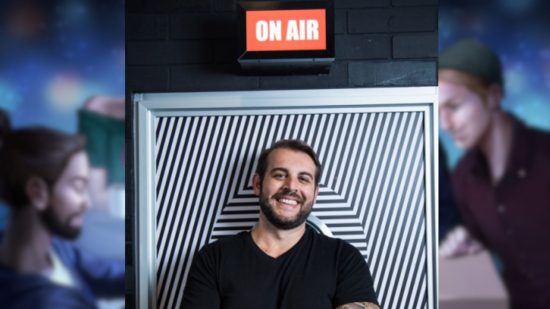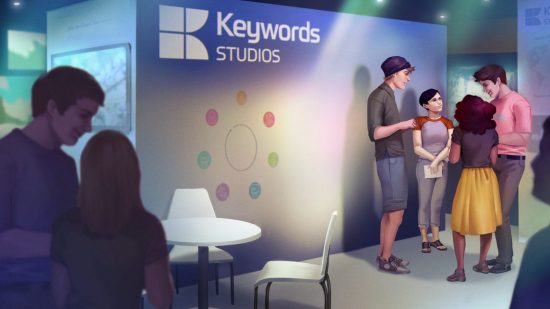Few can deny that the gaming industry has something of a bias towards Western and Asian developers and publishers. We fawn over studios like Nintendo, Hoyoverse, and others, while those outside our small sphere of awareness often have to strive for the same kind of appreciation. So, when we were offered an interview with Keywords Studios’s Brazil branch, we thought we’d make up for some lost ground, and find out more about mobile goings on in Latin America.
For our chat with Keywords Brazil, we managed to get some time with Marcio Sguilaro, the studio’s Audio LOC Manager with the Latin American branch. With Keyword’s expansion into Brazil now in its eighth year, Sguliaro has much to say about what he’s learned during his time with the company and how so much has changed in such a short time. So, without any further ado, let’s get into our discussion.
Pocket Tactics – First, for some context, can you tell us what you do at Keywords Studios?
Marcio Sguilaro – Yes, for sure! I’m the Audio Manager for the Audio Localization service line in São Paulo, Brazil. I handle all production-related tasks and manage our fantastic team of 23 people.
We know that there are over 88 million mobile gamers now in Brazil, how different is this industry in wider South America now compared to when Keywords Studios began?
When Keywords entered Brazil back in 2015, it focused mostly on text translation. Audio localization was still gaining traction in Pt-Br (Brazilian Portuguese) and our market wasn’t nearly as proficient as it is today. Since then, the mobile gaming industry in South America has experienced significant growth and changes, with new mobile gaming companies emerging, increased investment, improved infrastructure, and a special focus on localizing games.
Nowadays we are a consolidated market, with professional actors and artistic directors and different international players. This has meant Keywords Studios in Brazil being able to establish itself as a reference point in our industry.
As experts in the area, can you tell us how the infrastructure surrounding games is different to what we might know in the U.K. or U.S.A., and how does that affect your local strategies?
In terms of localization and looking at the technical aspects, in our case, our set up is the same as that of our studios in the UK and US. This is because we work with global clients that expect the same level of technical delivery as well as service, regardless of the market they are addressing with their products. In terms of actors, recording sessions and scheduling, each country has their own rules and regulations, so our local set up helps ensure local best practices are always followed.
Leading on from the last question, can you tell us what Keywords Studios has done to improve mobile game development infrastructure in South America?
Keywords Studios built a state-of-the-art facility back in 2019 with 6 recording studios and a 5.1 mixing control room, offering the best equipment and services to our talents, artistic directors and clients. What is also unique to Keywords Studios is our own proprietary tools for pre and postproduction, increasing productivity and efficiency tremendously as a result.
Finally, we have assembled a stellar team of project managers, QA experts, talent coordinators, InfoSec, recording and postproduction engineers for both the Games and Media & Entertainment verticals. We are proud to offer a turnkey localization solution for any sized game; from indies to AAA, we cover them all.
Lots of titles don’t get much more localization than some subtitles and UI changes, why do you believe it’s so important to localize fully to include voice and further audio?
For me, when a player interacts with a game in their mother tongue, the experience they have is much more complete. The immersion experience it provides puts them in the center of the action, living and breathing every detail the game has to offer. Additionally, localization increases accessibility for players, improves sales for clients, and demonstrates respect for cultural differences. A great solution from all angles!
With titles covering 26 different countries, how difficult is it to balance projects? And do you find that different countries need different approaches at all?
I believe our biggest challenge, like many multinational companies, is working across different time zones. The time difference between Asia and South America is 12 hours, with Asia being ahead of us, so that sometimes can be challenging. However, Keywords has implemented a “follow the sun” approach, where different teams around the world participate in the same project, maximising our ability to produce and deliver around the clock. In terms of different approaches in different countries, sometimes you can feel the cultural differences in how projects are handled and organized and that’s hugely beneficial as we get to exchange best practices and learn a lot.
The Keywords Studios site suggests a desire to be the “go-to provider of technical services”, how do you feel you can measure the success of that goal in South America?
I feel that, in Brazil, we have achieved that goal when it comes to audio and text localization as well as M&E dubbing. We are equipped to offer nothing but the best to clients of any size, in any country and in a cost-efficient and timely manner. But we also know that we have to stay ahead of technological advances to ensure our ways of working and services keep up with the times.
Finally, how do you see the future of mobile gaming in South America? And what part do you hope Keywords Studios have to play in that future?
I believe that the future of gaming here in South America looks very promising, especially for mobile gaming. With the continued growth in smartphone usage, 5G connectivity, and a rising number of mobile game developers, South America is becoming a key market.
I’m confident that Keywords has a vital role to play because we have the expertise and resources to help game developers and publishers navigate the challenges of our market and help the audience feel represented while experiencing games in Pt-BR. Finally, I hope to help the localization market mature even more and generate jobs for people who are interested in entering this amazing and dynamic market.
There you have it, our chat with Keywords Studios Brazil’s Marcio Sguilaro. For more engaging conversations with industry figures, check out our Yoko Taro interview, our Omega Strikers interview, and our Monument Valley interview.















